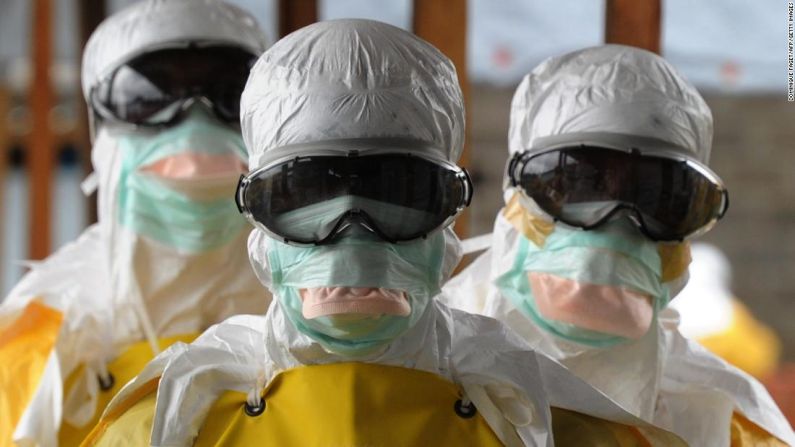The World Health Organization (WHO) has said “Disease X”, where “X” stands for unexpected, is hypothetical for now, an outbreak that scientists and public health experts fear could lead to serious disease around the world if and when it occurs

The scientist, who discovered Ebola over four decades ago, has warned humanity faces an unknown number of new and potentially fatal viruses emerging from African tropical rainforests even as a woman showing symptoms of hemorrhagic fever in a remote town in the Democratic Republic of the Congo, has sparked fears of new deadly pathogens.
According to CNN, the woman in Ingende was tested for several diseases, including Ebola, but they all came out as negative. It sparked fears her illness may have been caused by so-called ‘Disease X’, a new “unexpected” pathogen that could spread as rapidly as the coronavirus disease (Covid-19) but has Ebola’s fatality rate of 50 to 90%. The patient showing symptoms that looked like Ebola has recovered since then.
The World Health Organization (WHO) has said “Disease X”, where “X” stands for unexpected, is hypothetical for now, an outbreak that scientists and public health experts fear could lead to serious disease around the world if and when it occurs.
“We are now in a world where new pathogens will come out. And that’s what constitutes a threat for humanity,” Professor Jean-Jacques Muyembe Tamfum, who helped discover the Ebola virus in 1976, said while speaking to CNN. When asked if any new disease could be more apocalyptic than Covid-19, he said: “Yes, yes, I think so.”
Muyembe, according to CNN, has warned many more zoonotic diseases, or those that jump from animals to humans, could arise. Covid-19 is among those diseases, along with yellow fever and rabies, thought to have emerged from an unknown reservoir or the term used to indicate a virus’ natural host in the animal kingdom.
Muyembe runs the National Institute of Biomedical Research (INRB) in Kinshasa, which is supported by the US Centers for Disease Control and Prevention and WHO and its labs are the world’s early warning system for new outbreaks of known diseases like Ebola, and -- perhaps more importantly -- for those illnesses scientists are yet to discover. “If a pathogen emerged from Africa it will take time to spread all over the world. So, if this virus is detected early -- like in my institution here -- there will be opportunity for Europe [and the rest of the world] to develop new strategies to fight these new pathogens,” Muyembe told CNN.
SARS-CoV-2, which causes the coronavirus disease, is suspected to have originated in China and possibly from bats. Experts have largely attributed the outbreak of zoonotic diseases to the deforestation which sees animals’ natural habitats disappear.
The coronavirus disease has affected 85 million people, of which 1,843,143 have died, across the world, according to Johns Hopkins University’s Covid-19 tracker. India, the second worst-hit country after the United States, has 10,340,469 infections and its death toll stands at 149,649.